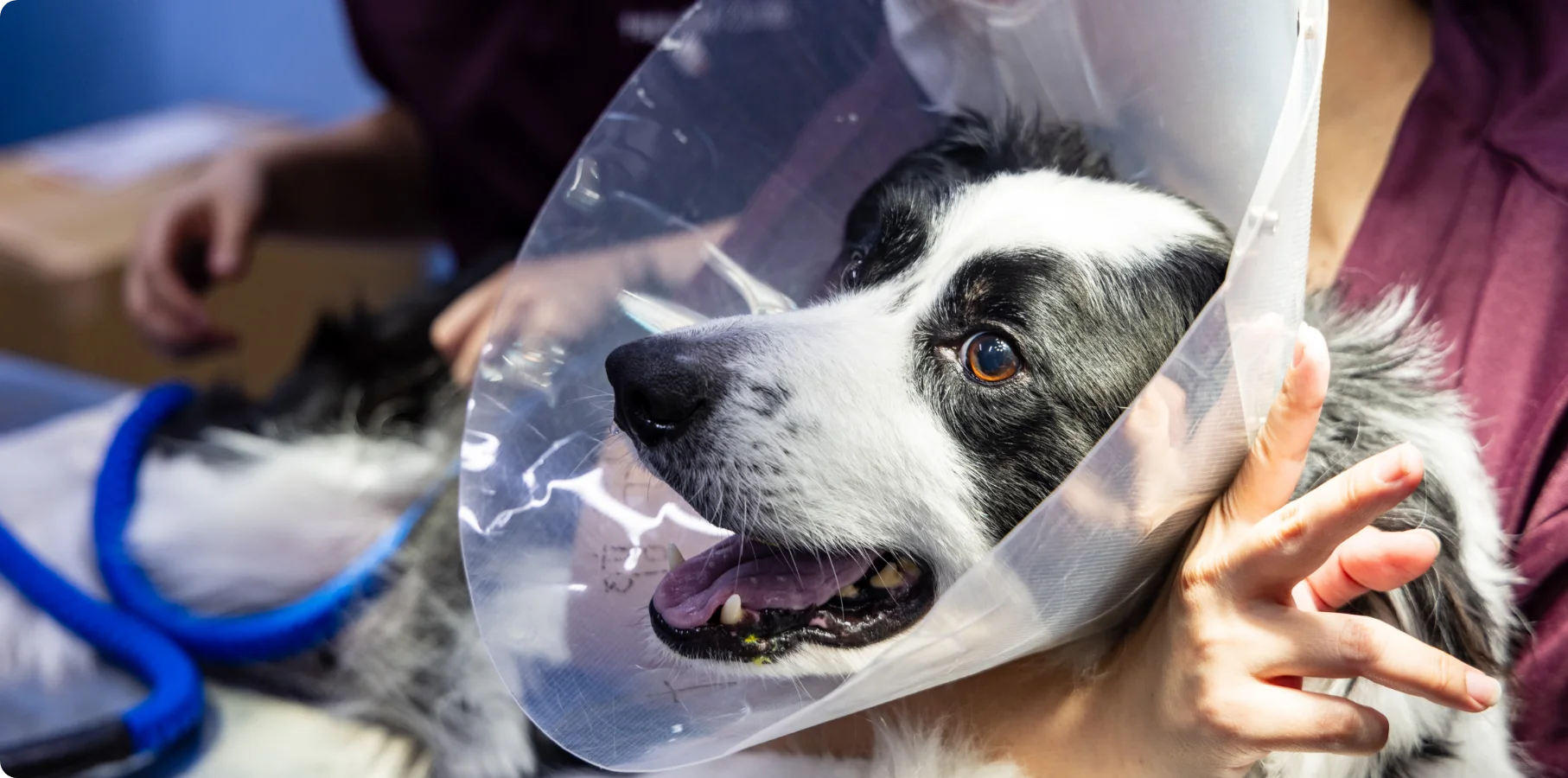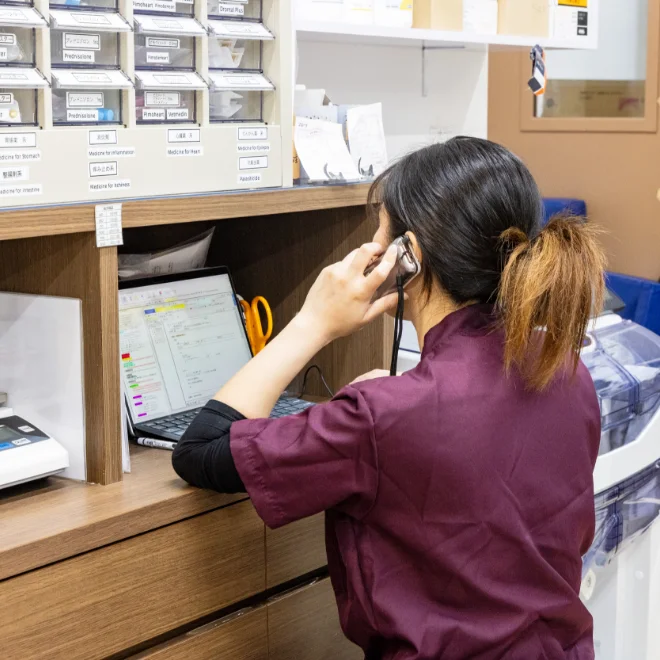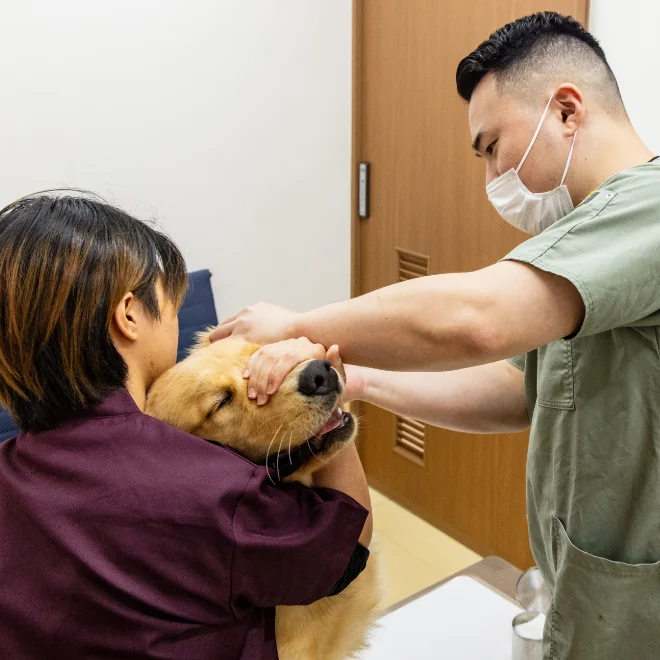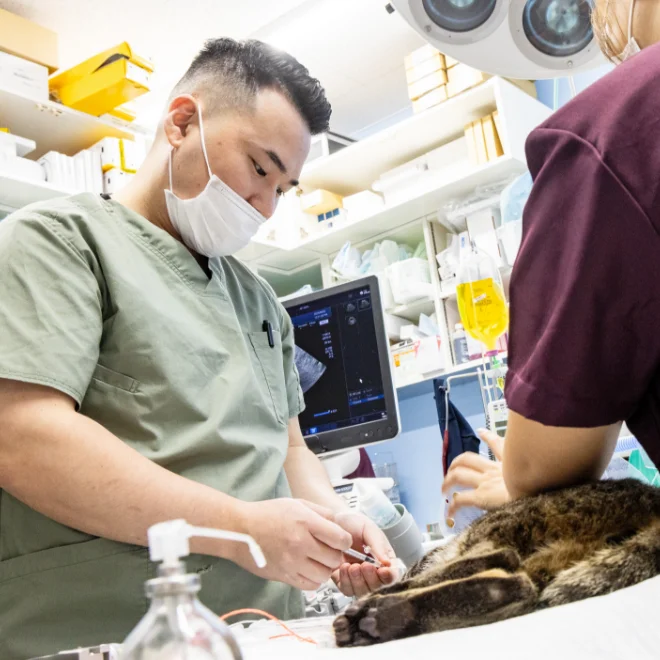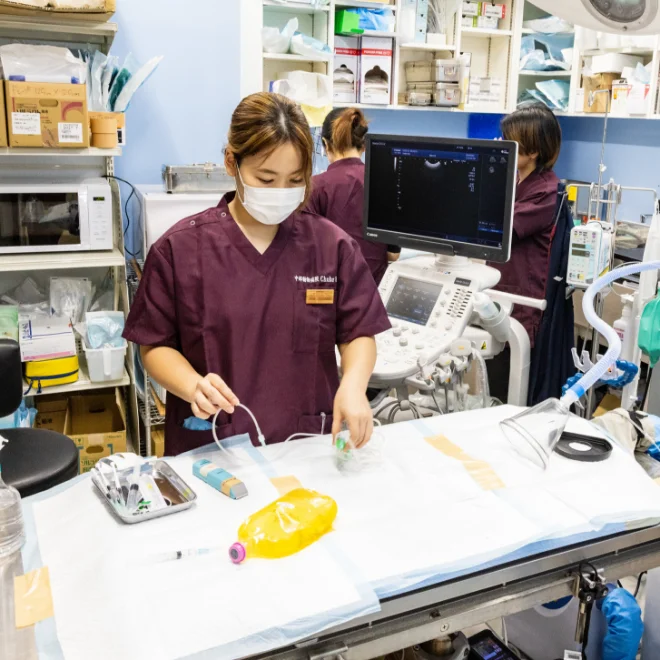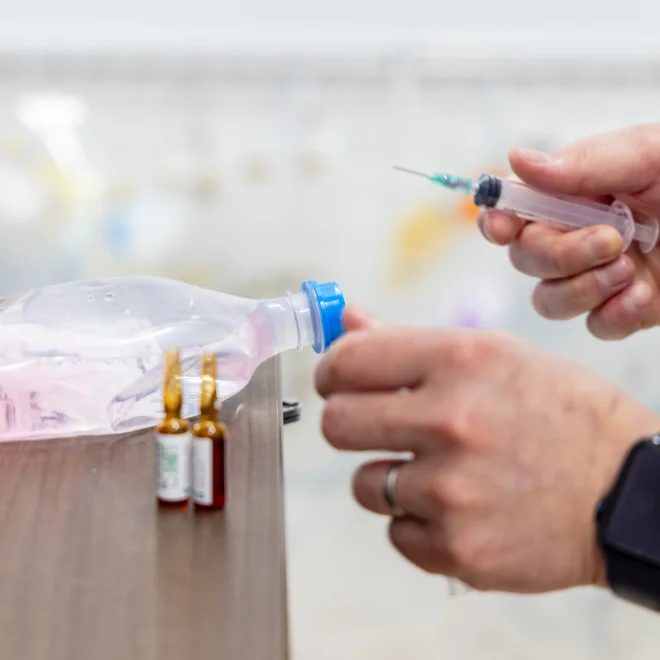Just like in human medicine, blood transfusion has the power to save many lives.
We ask for your understanding and cooperation in donating blood.
For animals that kindly donate blood,
we provide one vaccination and one health check free of charge.
Weight: at least 8 kg
(No weight restriction for cats)
Annual preventive treatment:
vaccinated against and preventively treated for heartworm
For inquiries regarding diagnostics or surgery
Please contact us during your visit or by phone
(Phone reception hours: 9:00 AM – 7:00 PM)
Dog & Cat Blood Donation Program
At our hospital, we provide daily medical care, surgery, and inpatient treatment for dogs and cats facing illness.
Some of these animals suffer from severe anemia due to bleeding or disease, rendering blood transfusions indispensable.
Unlike human medicine, veterinary medicine lacks an organized blood donation system or a public infrastructure for blood storage and distribution.
Therefore, whenever a transfusion becomes necessary, we must ask for blood donations from healthy, young dogs or cats on a case-by-case basis.
At Chubu Animal Hospital, we are seeking dogs and cats who can help as blood donors to save as many lives as possible.
How to Register and the Blood Donation Process
Step 1: Donor Registration
At our hospital, we explain the donor eligibility criteria and registration process. At the same time, you will have your pet’s blood type determined and registered. Please feel free to contact us first.
Step 2: Blood Donation Request
In the event that a blood transfusion is urgently needed, we may reach out to registered pet owners for their cooperation. Please be aware that contact may be sudden. After you bring your pet to the hospital and complete the reception process, the blood donation will be conducted during your pet’s stay with us. The total time from drop-off to pick-up is approximately two hours.
Step 3: Health Examination
Before the blood donation, we conduct an interview and a health check to ensure your pet is suitable for donation. The examination includes a physical check and a blood test.
Step 4: Blood Collection
The blood is collected from the jugular vein by a veterinarian after shaving and disinfecting the area. The volume collected is up to approximately 20 ml per kg of body weight, adjusted to ensure the donor is not overburdened.
Step 5: Intravenous Fluid Administration
After ensuring hemostasis, an intravenous drip of at least the same volume as the collected blood is administered. Please have your pet rest for precaution after returning home, but normal activity can resume the next day.
Eligible Donor Criteria
Registration is limited to dogs and cats that meet the following conditions and are in good health.
Ideally, the animal should have a history of being seen at our hospital and be calm and cooperative at the time of blood collection.
|
Dogs |
Cats |
| Age & Sex |
1 to 7 years old
neutered male or female without breeding history Same as above |
| Weight |
At least 10 kg |
At least 3.5 kg |
| Preventive & Tests |
Core vaccine, rabies vaccine,
flea/tick and heartworm prevention |
Feline leukemia & AIDS testing,
core vaccine,
flea/tick prevention |
| Living Environment |
Indoor or outdoor |
Indoor-only housing |
About Sedation Procedures
Since blood collection is conducted from the jugular vein, sudden movement or struggle from the animal may risk injuring nearby nerves or arteries. For safety reasons, sedation may be administered. Sedation is performed with utmost care while closely monitoring the animal’s condition; however, in veterinary medicine, it’s impossible to completely eliminate all unforeseen risks. Please understand this in advance. If any adverse reaction is observed, blood collection will be immediately stopped and appropriate measures will be taken.
About Blood Types in Dogs and Cats
Transfusion requires verification of blood-type compatibility between the donor and the recipient.
Although humans are categorized into the four types A, B, AB, and O, canine and feline blood-type classifications differ and must be considered when selecting donors.
Dog / Blood Transfusion Compatibility
Donor Dog
(providing blood) |
Recipient Dog
(receiving blood) |
| DEA I.I(+) |
DEA I.I(-) |
| DEA I.I(+) |
◯ |
✕ |
| DEA I.I(-) |
◯ |
◯ |
Dogs have two blood types: DEA 1.1 positive and DEA 1.1 negative. Only DEA 1.1 negative blood can be transfused to a DEA 1.1 negative dog. Most dogs are DEA 1.1 positive—approximately 60% to 80%. In contrast, DEA 1.1 negative dogs are rarer, comprising about 20% to 40% of the population.
Cat / Blood Transfusion Compatibility
Donor Cat
(providing blood) |
Recipient Cat
(receiving blood) |
| A |
B |
| A |
◯ |
✕ |
| B |
✕ |
◯ |
Cats have three blood types: A, B, and AB, and transfusions are typically performed between animals of the same type. Type A is most common, accounting for 70% to 90% of cats, type B for 10% to 30%, and type AB for only 1% to 5%.
